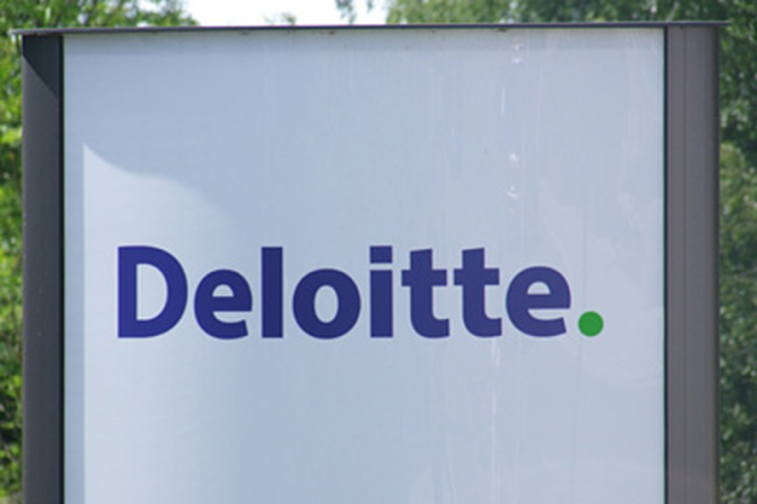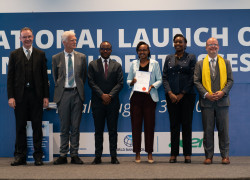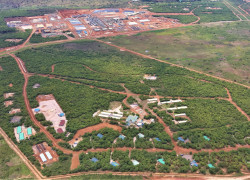Deloitte: First round of AIFMD reporting completed—lessons for the second round
The next Alternative Investment Fund Managers Directive (AIFMD) reporting cycle begins this week: what can we learn from the first reporting experience?
The first round of AIFMD reporting has proved challenging for alternative investment fund managers—as well as regulators—yet they have managed to meet the deadline successfully. According to a new Deloitte Luxembourg report AIFMD reporting survey: what lies ahead, what went before?, the next reporting cycle should build on this success while also addressing specific points about cost, outsourcing, and the use and purpose of the collected data.
“In the next AIFMD reporting cycle, due to begin this week, efficiency and cost issues loom large. The fund managers surveyed also face resource constraints in their Risk and Compliance departments, raising questions about how to manage the reporting going forward. The question of whether to outsource AIFMD reporting or to conduct it in-house will also be important in the next cycle. Lastly, questions remain about the whether the data requested by regulators is fit for its purpose and whether it could be misused or misinterpreted,” commented Lou Kiesch, Partner at Deloitte Luxembourg.
Key findings
Difficulty and cost
In terms of the difficulty of carrying out the new reporting, 63 percent of respondents reported that it was “more difficult” than expected. For about a third of respondents, the project lasted between three and six months and for the remainder, between six months and one year. These timelines were not as long as expected. However, the timelines were possibly affected by the efforts and initiatives of first movers—both the in-house players and the outsource solution providers—who obtained clarification from regulators, which worked in favor of all and allowed the cycle to be shorter or at least to appear more efficient.
In terms of cost, 42 percent said that it was “as expensive as anticipated,” and 22 percent said it was “more expensive than anticipated.” Two-thirds of respondents were either absorbing the costs or sharing them with the fund: 42 percent of the costs would be absorbed by the fund managers themselves, rather than passed on, and 25 percent would share the costs with the fund.
The “first mover” effect is a consideration that should be kept in mind when contemplating future developments and how the “business as usual” (BaU) solution can be best implemented. In the initial cycle, many have benefited from the preparatory work carried out by industry majors or service providers who have been actively engaged in the process for up to 24 months.
Pressure on risk departments
It is clear from the findings that risk professionals were in high demand during the first cycle of AIFMD reporting: 36 percent of all reporting activity involved risk (alongside 33 percent involving operations and 31 percent involving IT). Risk professionals are already becoming scarce in Luxembourg and in many other financial centers, and they remain deeply involved with all regulatory activity implemented since the financial crisis. This additional demand on their time makes risk skills all the more scarce for other activities.
No “one-size-fits-all” solution
Going forward, scale will help to determine the most cost-effective solution. For the upcoming reporting cycle, 72 percent of all fund managers said they would consider outsourcing their reporting activities. The relative success of the first cycle was due to mutualization; this level of mutualization will likely only be available via outsourcing in the next cycle. Of the 23 percent who would not consider outsourcing, they indicated that since liability remains with the AIFM, the added-value of outsourcing would be limited. Lastly, if fund managers remain dependent on the availability of certain scarce resources, especially in risk departments, outsourcing may relieve some of the pressure.
AIFMD reporting in context
AIFMD reporting does not take place in a vacuum. Globally, regulators and the financial industry have moved toward greater financial transparency in the wake of the financial crisis. Alongside AIFMD reporting, fund managers and other financial actors in Europe are responding to several data-based initiatives and obligations, including European Market Infrastructure Regulation (EMIR), Markets in Financial Instruments Regulation (MiFIR), Packaged Retain and Insurance-based Investment Products (PRIIPS), and Solvency II, among others. These obligations again underscore the pressure upon risk departments that must cope with regulatory reporting obligations.
As with other types of reporting, it will be important for fund managers and regulators to have an on-going dialogue about the purpose of the data and its use. Coordination among regulators will also be important to ensure an efficient process. Ultimately, the reporting process should take a more strategic focus that will aid both fund managers and regulators to meet the new requirements.
Communiqués liés
RSA launches technology and management liability insurance s...
RSA Luxembourg, part of Intact Insurance Specialty Solutions, today announces th...
Lancement d'une nouvelle connexion intermodale entre Bettemb...
CFL multimodal a le plaisir d'annoncer le lancement de sa nouvelle connexion i...
Experts from LUNEX award first micro-credentials in Rwanda o...
The Rwanda Ministry of Education (MINEDUC) formally inaugurated Syllabi, a publi...
ERG Notes that ENRC Secures Landmark Victory as Court of App...
Eurasian Resources Group (ERG), a leading diversified natural resources group he...
LetzToken et La Vie est Belle annoncent leur partenariat ouv...
«?LetzToken?», plateforme de tokenisation pionnière basée à Luxembourg, et ...
ERG announces a Pre-Export Finance Facility Agreement based ...
Eurasian Resources Group (“ERG”, “The Group”), a leading diversified nat...
Il n'y a aucun résultat pour votre recherche







